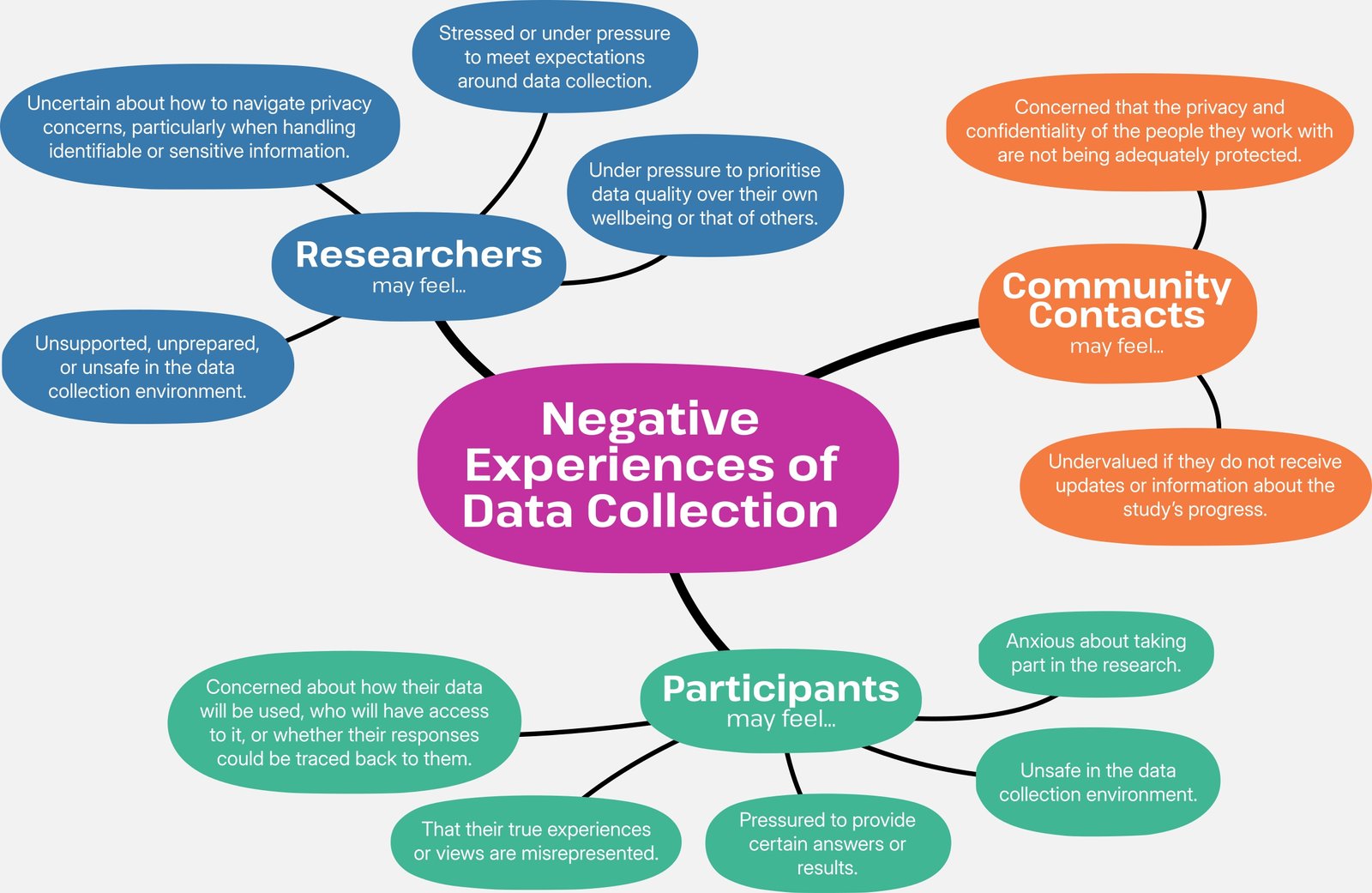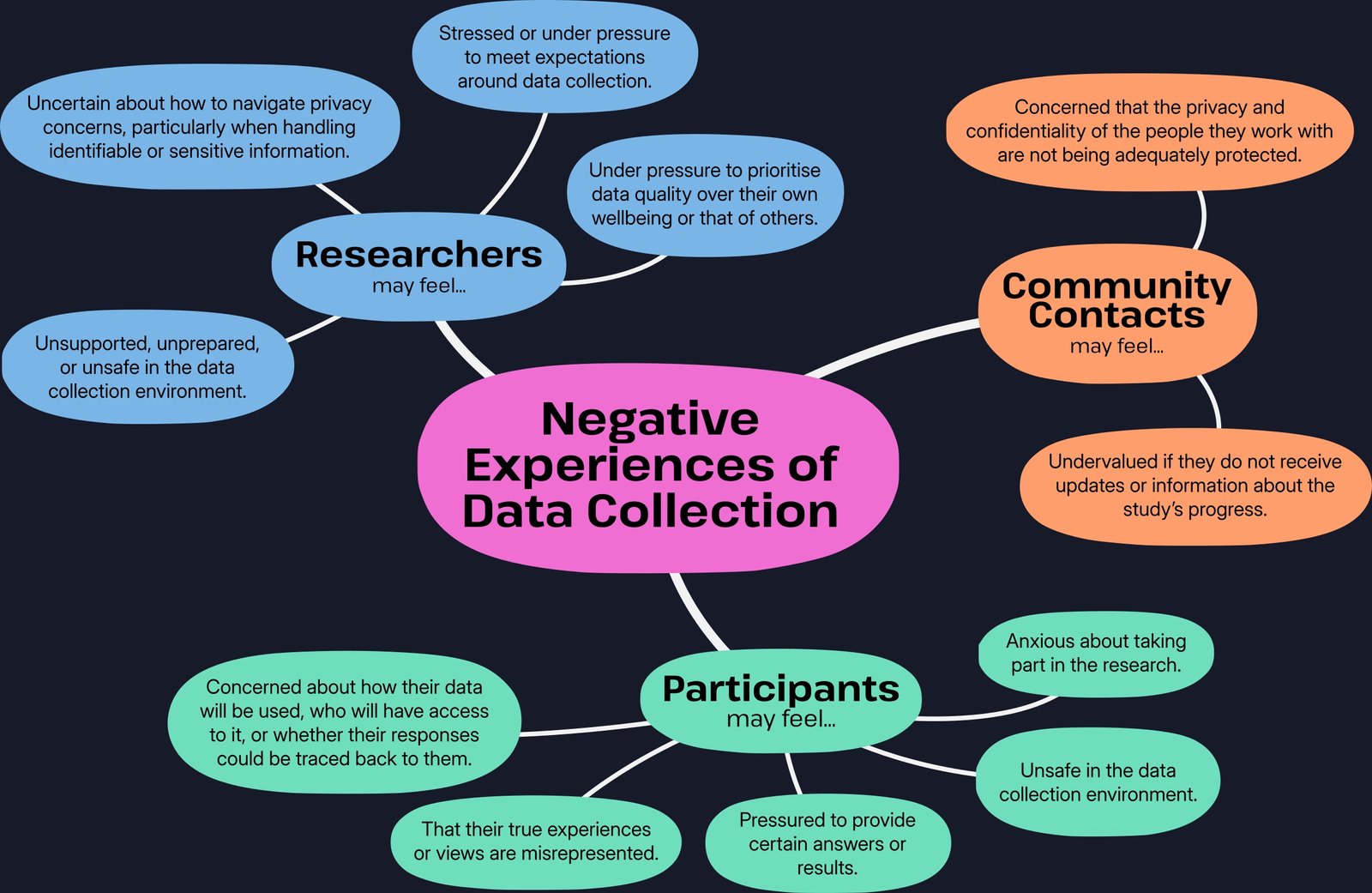Introduction
When conducting research, it is important to consider the impact of the data collection process on all those involved. The diverse life experiences and identities that people embody mean that each person will have a different relation to this process.


Data collection can be stressful and negative experiences at this stage can leave researchers, participants, and community groups feeling excluded, undervalued, or misunderstood.
Concerns about privacy and data security can add further stress, particularly if individuals are unsure how their information will be used, who will have access to it, or whether they can safely withdraw from the study.
Some examples of these experiences include:
A transparent, open, and supportive research environment helps to address issues that may arise during data collection. This involves not only fostering clear communication and ethical data collection practices but also taking deliberate steps to protect privacy—such as anonymising data, obtaining informed consent, and securely managing sensitive information. By prioritising both inclusivity and privacy, researchers can create a data collection process that ensures participants, researchers, and community groups feel respected and valued throughout the process.
Practical Steps and Tools
Make a list of all the people involved in the research project and the data collection process. Consider their identities and any barriers or risks they may face. Some individuals may have disclosed relevant information that can guide this. You might think about:
Researchers
- Risks associated with fieldwork. Read Being Queer in the Jungle by Ben Ragen and Safe Fieldwork Strategies for At-Risk Individuals, Their Supervisors, and Institutions by Demery & Pipkin.
- Risks of lone working. Read The Safety of Researchers and Participants in Primary Care Qualitative Research by Williamson & Burns.
- Accessibility of lab and research spaces for people with disabilities. Read Lab Access Guidelines by Access All Areas at UEA.
Research Participants
- What power imbalances might be present, and how could they impact the data collection process? Read The Safety of Researchers and Participants in Primary Care Qualitative Research by Williamson & Burns.
Community Collaborators
- How equitable is the partnership? Explore the resources by Rethinking Research Collaborative.
Create a safe and inclusive work environment by ensuring that everyone has completed basic training on equity, diversity, and inclusion, including topics such as:
- protected characteristics.
- neurodiversity.
- microaggressions in the workplace.
Ensure that all team members receive the necessary skills-based training required to carry out their role.
Check in with colleagues and collaborators regularly to ensure everyone is managing well.
Prioritise open communication among all those involved:
- make the study protocol available and ensure transparency in data collection procedures.
- consider whether a structured plan for regular communication or updates is needed.
The Inclusive Research Hub section on Building in Accessibility will also be useful to help structure your thinking on the different needs people may have when accessing research.
Refer back to it with your data collection process in mind and think about what changes could be made.
References and Further Resources
A guide to inclusive social research practices, hosted on GOV.UK, has a section which provides further advice on how to undertake inclusive data collection.
The COMET Fieldwork Guidelines aim to facilitate and promote safe, equitable and inclusive research fieldwork for all.

